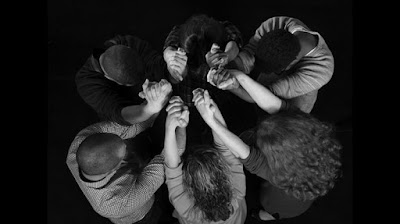Unifying Our Communities in Response to Hate | by Rob Viso

On the evening of Valentine’s Day, the holiday of love, 200 people gathered to unite under the desire to disarm hate. Prominent members of different religious communities spoke in response to the hate they have encountered. They each spoke with power and conviction, pushing for unity across all traditions while remaining firm in their beliefs. The common thread across all speakers, was that we need to get to know one another. Without getting to know one another, common misconceptions are held which further drive apart communities. Tree of Life Rabbi Jeffrey Myers suggested that we get rid of the word hate and replace it with “H”. Rabbi Myers said (paraphrased), “violence is a manifestation of H speech. It is these words that grow into actions. In order to address H, we must remove the root.” In reflecting on these profound words, I must agree. I believe the root of the problem is the heart. I am reminded of a verse from the Hebrew Bible, “As water ref...





